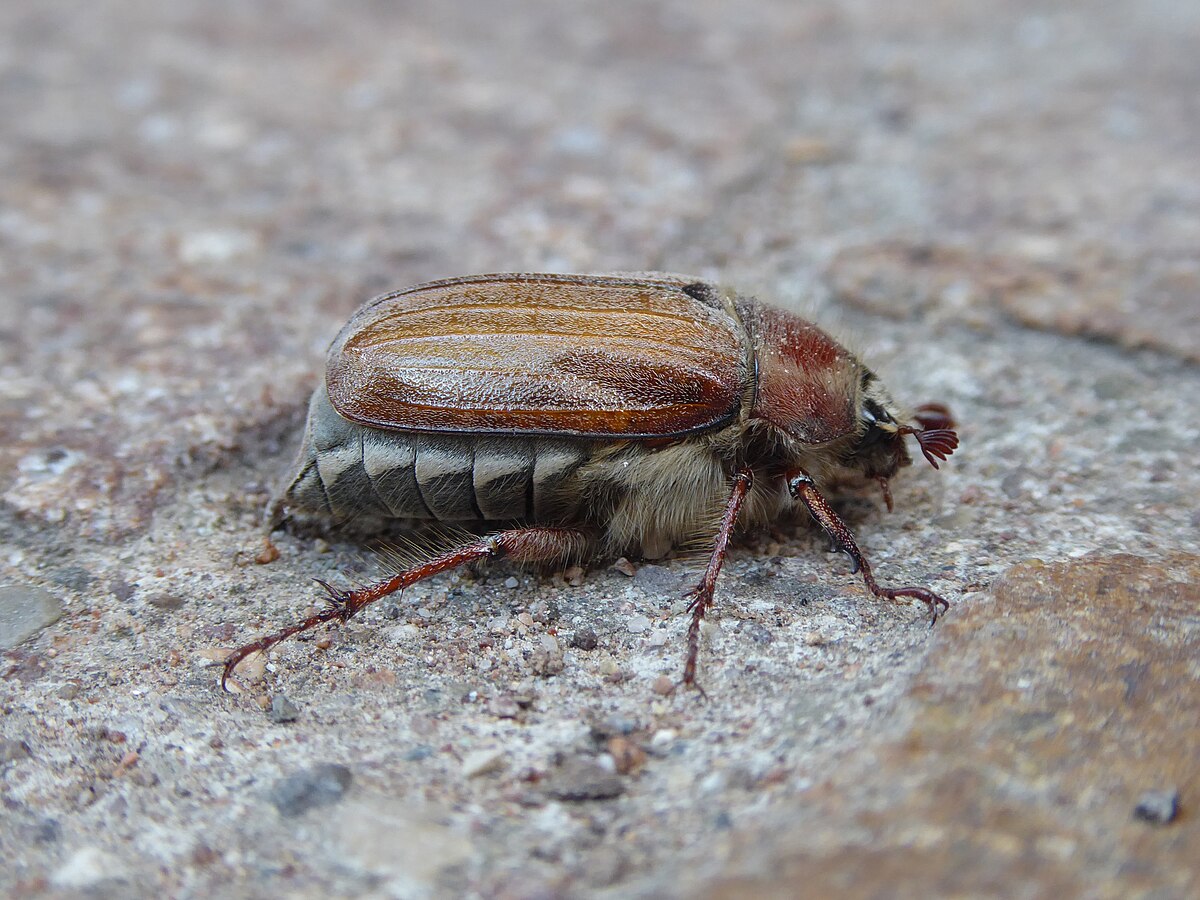Melolontha hippocastani

Melolontha hippocastani, the northern cockchafer, is a species of scarab beetle native to Eurasia, with its range spanning from Western Europe to the Pacific coast of China. It is one of several species in the genus Melolontha known as cockchafers, alongside the common cockchafer and Melolontha pectoralis, but generally at more northern latitudes, or at higher altitudes in upland woods further south. The adults are around 20–29 mm in length. It is distinguished from Melolontha melolontha by the shape of its pygidium, which is primarily black in colour. It primarily dwells in forests, and as such is also known as the forest cockchafer. The mate-finding behaviour in M. hippocastani is facilitated by plant volatiles and sex pheromones. Mating activities primarily takes place during the evening flight periods. Females lay their eggs in soil, and the larvae feed on decaying organic matter and later small plant roots, including the roots of young trees like pines and firs. The larvae usually develop between 3 and 5 years. They emerge between late April and the end of June. Like other cockchafers, they have been considered a serious pest of crops and trees.
Host Genome
Related Symbionts
3 recordsSymbiont records associated with Melolontha hippocastani
| Classification | Function | Function Tags | Reference | |
|---|---|---|---|---|
|
Trabulsiella
Pseudomonadota |
Bacteria
|
Trabulsiella is involved in cellulose degradation. |
cellulose hydrolysis
|
|
|
Burkholderia
Pseudomonadota |
Bacteria
|
Burkholderia is involved in nitrogen recycling. |
nitrogen fixation
|
|
|
Bacteria
|
- |
Metagenome Information
0 recordsMetagenome sequencing data associated with Melolontha hippocastani
| Run | Platform | Location | Date | BioProject |
|---|---|---|---|---|
No metagenomes foundNo metagenome records associated with this host species. |
||||
Amplicon Information
0 recordsAmplicon sequencing data associated with Melolontha hippocastani
| Run | Classification | Platform | Location | Environment |
|---|---|---|---|---|
No amplicons foundNo amplicon records associated with this host species. |
||||
Related Articles
2 recordsResearch articles related to Melolontha hippocastani
| Title | Authors | Journal | Year | DOI |
|---|---|---|---|---|
|
Alonso-Pernas, P; Arias-Cordero, E; Novoselov, A ... Neugebauer, U; Boland, W
|
FRONTIERS IN MICROBIOLOGY
|
2017
|
10.3389/fmicb.2017.00291 | |
|
Alonso-Pernas, P; Bartram, S; Arias-Cordero, EM ... Shao, YQ; Boland, W
|
FRONTIERS IN MICROBIOLOGY
|
2017
|
10.3389/fmicb.2017.01970 |